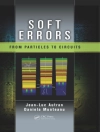This book presents a practical framework for the application of big data, cloud, and pervasive and complex systems to sustainable solutions for urban environmental challenges. It covers the technologies, potential, and possible and impact of big data on energy efficiency and the urban environment.
The book first introduces key aspects of big data, cloud services, pervasive computing, and mobile technologies from a pragmatic design perspective, including sample open source firmware. Cloud services, mobile and embedded platforms, interfaces, operating system design methods, networking, and middleware are all considered. The authors then explore in detail the framework, design principles, architecture and key components of developing energy systems to support sustainable urban environments. The included case study provides a pathway to improve the eco-efficiency of urban transport, demonstrating how to design an energy efficient next generation urban navigation system by leveraging vast cloud data sets on user-behavior. Ultimately, this resource maps big data’s pivotal intersection with rapid global urbanization along the path to a sustainable future.
विषयसूची
Part I Features of Big data Systems.- Big Data Introduction.-Big data Systems landscape/ overview.- Part II Developing Sustainable Big data systems.- The trends of Big data systems.- Platform Architecture.- Reference Architecture.- ISUNS system design (Case Study).- Part III Future Development to Enhance Eco-efficiency.- Potential Applications for Big data systems.- Performance Evaluation.
लेखक के बारे में
Dr. Stephen Jia Wang (Doc FA M.Eng MA BA) works in the Department of Design at Monash University as a
Senior Lecturer, Director of International Tangible Interaction Design Lab (ITIDLab), and Program Director of Interaction Design. He has an integrated background across the fields of industrial design, interaction design, computer engineering and architectural design. He earned his BA in Industrial Design from Tsinghua University in Beijing, his MA in Interaction Design from Tama Art University in Tokyo, his MA in Engineering from the Royal Melbourne Institute of Technology, and his Ph D in Architectural Design from Tokyo University of the Arts. At Monash, he has created a Master’s course in Interaction Design, in addition to lecturing and conducting ongoing research. He has also worked in industry as an Interactive Media Director and an Environmental Interaction Designer. He has been awarded grants from corporates and the government sector alike, from sources such as Microsoft Research Asia, and the Australia-Japan Foundation of the Department of Foreign Affairs and Trade. Dr. Wang is a full member of the Japanese Society for the Science of Design, and the Japanese Design Research Association, as well as a member of the Interaction Design Association. He sits on the scientific advisory board of the International Conference on Sustainable Development of Energy, Water and Environment Systems, and is a member of the Organizing Committee of the China International Tangible Interaction Design & Innovation Exhibition.












